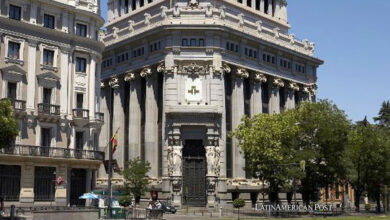FICCI 59: winds of change in this new edition of the festival
Listen this article
In its 59th edition, the FICCI premieres artistic director, includes more categories such as afro and indigenous cinema and eliminates official competition

On March 6, the International Film Festival of Cartagena de Indias (FICCI) opens its doors again in its 59th edition. A new year in which an artistic director, the Colombian director, and cultural manager Felipe Aljure, will debut with a curatorial group of more than 10 people who shaped this year's programming.
Leer en español: FICCI 59: aires de cambio en en esta nueva edición del festival
Being diversity one of their ambitions, between official and special films, there will be more categories of samples, in which clear efforts of inclusion are transmitted, such as the Afro or indigenous sample. They will also have three special guests: Michael Shannon, Ethan Cohen and Victor Gaviria, each with their respective tribute of two films. Finally, there was also the announcement that the festival decided not to hold official competitions.
Here at LatinAmerican Post, we give you a small summary of what you should know for this new edition of the FICCI.
Read also: The list of Oscar winners, commented
New artistic director, more categories of samples
In July of last year, it was announced that the FICCI would have a new artistic director: Felipe Aljure, who would replace Diana Bustamante, who was in charge since 2014. According to a press release on the festival's website, Aljure was chosen for "his time in the Cinematography Department, his long career in the production and management trade, his invaluable contribution to the conception of film laws and the gestation of his public politics".
The director of films such as La gente de la Universal (1991), El Colombian Dream (2006) and Tres escapularios (2015) took the reins of the festival and opted to give diversity to the selection of samples. The first way to do it, evidently, was to expand the amount of category of samples, although that will imply showing less in each one.
Within these new samples, two stand out with a clear political message of inclusion in the Latin American symbolic capital: the Afro film show and the indigenous film show. The first will feature classic films such as Queimada (1969) by Gillo Pontecorvo, even more, local and current such as El mal de los siete días by Victor Gonzales Urrutia (2017) and El hombre universal (2018) by Andrés Morales.
The second will feature only documentaries and short films including El marqués de Wavrin, del castillo a la selva (2017) by Grace Winter and Luc Plantier, Sembradoras de Vida (2018) by Álvaro and Diego Sarmiento, or Üus Wejxia. Land and forgetfulness (2018) by Mauricio Acosta. Will there be questioning about how the Afro and indigenous communities are represented? Who represents it and in what contexts (colonial, modern, African, American, etc.) That is the expectation we have.
Special guests, a festival without official competition
As mentioned above, the festival will feature three special guests: Ethan Coen, Michael Shannon, and Victor Gaviria. On the American side, the former is recognized for working with his brother Joel Coen on what it means to be American, both in the deep south and in No Country for Old Men (2007), and in the cold north Fargo (1996), both selected for the tribute sample of the FICCI.
The second, an actor born in Kentucky, has been twice nominated to the Academy Awards for his roles in Revolutionary Road (2008) and Nocturnal Animals (2016), once to the Golden Globe for 99 Homes (2014) and once to the Tony Award for Long Day's Journal into the Night (2016).
On the Colombian side, Victor Gaviria is a filmmaker known for his films with natural actors and scenes of domestic and social violence such as Rodrigo D. no futuro (1990), La vendedora de rosas (1998), and La mujer del Animal (2017), de which the first two were nominated at the Cannes Festival at the time and will be screened in Cartagena.
Finally, among other criticisms that have been made, we must mention the fact that this year the FICCI will not hold any official competition, so there will be neither winners nor losers, only the meeting of people who want to make or watch movies. According to the official website, "The 10 samples (…) will not be competitive, and the selected films will have relationship advantages and media exposure for being part of the Festival's programming".
Does this break with the tradition of the festival to recognize the work of directors through the official award, which not only granted an economic prize but the visibility that implies winning a prize from a recognized festival? Certainly, but, from another point of view, would this dynamic serve to emphasize more in the art and the encounter around the movies? In the end, does the celebration of film festivals necessarily pass through competition or are there other alternatives? We will have to wait to see the legacy left by this edition of the FICCI.
We will be informing you on these days of the festival the development of the FICCI 59.
LatinAmerican Post | Juan Gabriel Bocanegra
Translated from "FICCI 59: aires de cambio en esta nueva edición del festival"





